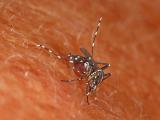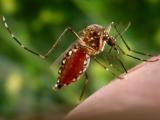Jan 13, 2012
Study: Presence of autoantibodies in population strikingly high
More than 32 million people aged 12 and older in the United States likely have antinuclear antibodies (ANA), which can indicate or be precursors of autoimmune diseases such as type 1 diabetes, lupus, and rheumatoid arthritis, says a study published yesterday in Arthritis & Rheumatism. The study, from the National Institutes of Health's (NIH's) National Institute of Environmental Health Sciences (NIEHS) and the University of Florida, Gainesville, is the first to measure the prevalence of ANA, the most common type of autoantibody, in a large, nationally representative sample of the general population. The authors used indirect immunofluorescence to analyze blood serum samples from 4,754 people who were part of NIH's National Health and Nutrition Examination Survey (NHANES) from 1999 to 2004. ANA prevalence in the group was 13.8%, which extrapolates to 32 million in the US population. Prevalence increased with age; was higher in females, with the female-male ratio peaking in those 40 to 49 years old; and was higher in African Americans than whites. Unexpectedly, the prevalence was higher in normal-weight than overweight or obese subjects.
Jan 13 NIH press release
Arthritis & Rheumatism abstract
Dogs can harbor norovirus
Pet dogs may play a role in the transmission of human norovirus, says a study in the Journal of Clinical Virology. Fecal samples from 92 indoor pet dogs from households where the dog or humans had experienced diarrhea or vomiting were screened for a variety of human norovirus genotypes. Four dogs were positive for norovirus genogroup GII, the most common strain circulating in humans. All of the dogs lived in households with small children, and two of the dogs had mild symptoms. The researchers conclude that human norovirus can survive in the canine gastrointestinal tract, although determining whether the virus can replicate there will require further research.
Jan 12 J Clin Virol abstract
Study: Linezolid outperforms vancomycin in MRSA pneumonia
In a multicenter, randomized controlled trial, linezolid was significantly more effective than vancomycin—long the standard therapy—for treating patients with nosocomial methicillin-resistant Staphylococcus aureus (MRSA) pneumonia, according to a report published yesterday in Clinical Infectious Diseases. Patients in the double-blind study were randomly assigned to receive linezolid (600 mg every 12 hours) or vancomycin (15 milligrams per kilogram) every 12 hours for 7 to 14 days. In the per-protocol population, 57.6% (95 of 165) of the linezolid-treated patients achieved clinical success at the end of the study, versus 46.6% (81 of 174) of the vancomycin-treated patients (P=.42). Adverse renal effects were twice as common in the vancomycin patients (7.3% versus 3.7%). However, all-cause mortality at 60 days was similar in the two groups: linezolid, 15.7%; vancomycin, 17.0%. In an accompanying commentary, Antoni Torres of the University of Barcelona writes that current recommendations from the Infectious Diseases Society of America and the American Thoracic Society put linezolid and vancomycin on a similar level. With this study and other recent findings, Torres says, "The recommendations regarding linezolid must be reconsidered and probably expanded. In addition to the better clinical and microbiological cures observed in this study, the risk of renal failure with vancomycin is a strong argument in favor of linezolid."
Jan 12 Clin Infect Dis abstract
Jan 12 Clin Infect Dis commentary excerpt
WHO hails India's polio achievement
In a statement yesterday, the World Health Organization (WHO) praised India for having gone a year without finding a new polio case, signaling that it has apparently interrupted wild polio virus transmission. The WHO said India's achievement is notable because the country was once the epicenter of polio. The government reported its last case on Jan 13, 2011, in a 2-year-old girl from West Bengal state. If pending lab tests are negative, India will have stopped indigenous polio transmission, reducing the number of countries that have never accomplished that feat to a historical low of three: Afghanistan, Nigeria, and Pakistan. WHO Director-General Dr. Margaret Chan said in the statement, "India's success is arguably its greatest public health achievement and has provided a global opportunity to push for the end of polio." The WHO praised India for its leadership and financial commitment to stopping polio transmission, which involved delivering nearly a billion doses of oral polio vaccine each year. India's achievement comes amid calls for a renewed global push to eradicate the disease.
Jan 13 WHO statement
Jan 9 CIDRAP News story
Study finds dengue-chikungunya co-infections in India
An analysis of blood tests from patients treated for dengue and chickungunya infections at a tertiary hospital in India revealed that 2.7% of patients who were tested for both viruses had co-infections, according to a letter published online Jan 6 by the Indian Journal of Pathology and Microbiology. Among 331 samples tested for dengue, 12% (40) were positive. Of 170 samples tested for chikungunya, 19% (33) were positive. Of 72 samples tested for both viruses, 2.7% (2) were positive for both. The authors reported that the clinical pictures for the two diseases are similar, though dengue infections can have more serious outcomes, and both viruses are spread by Aedes aegypti mosquitoes. They suggested that cases of either disease can be missed if both tests aren't performed, and added that the presence of one disease doesn't rule out the other. The diseases follow a seasonal pattern, rising in post-monsoon periods, the report said.
Jan 6 Indian J Pathol Microbiol letter















